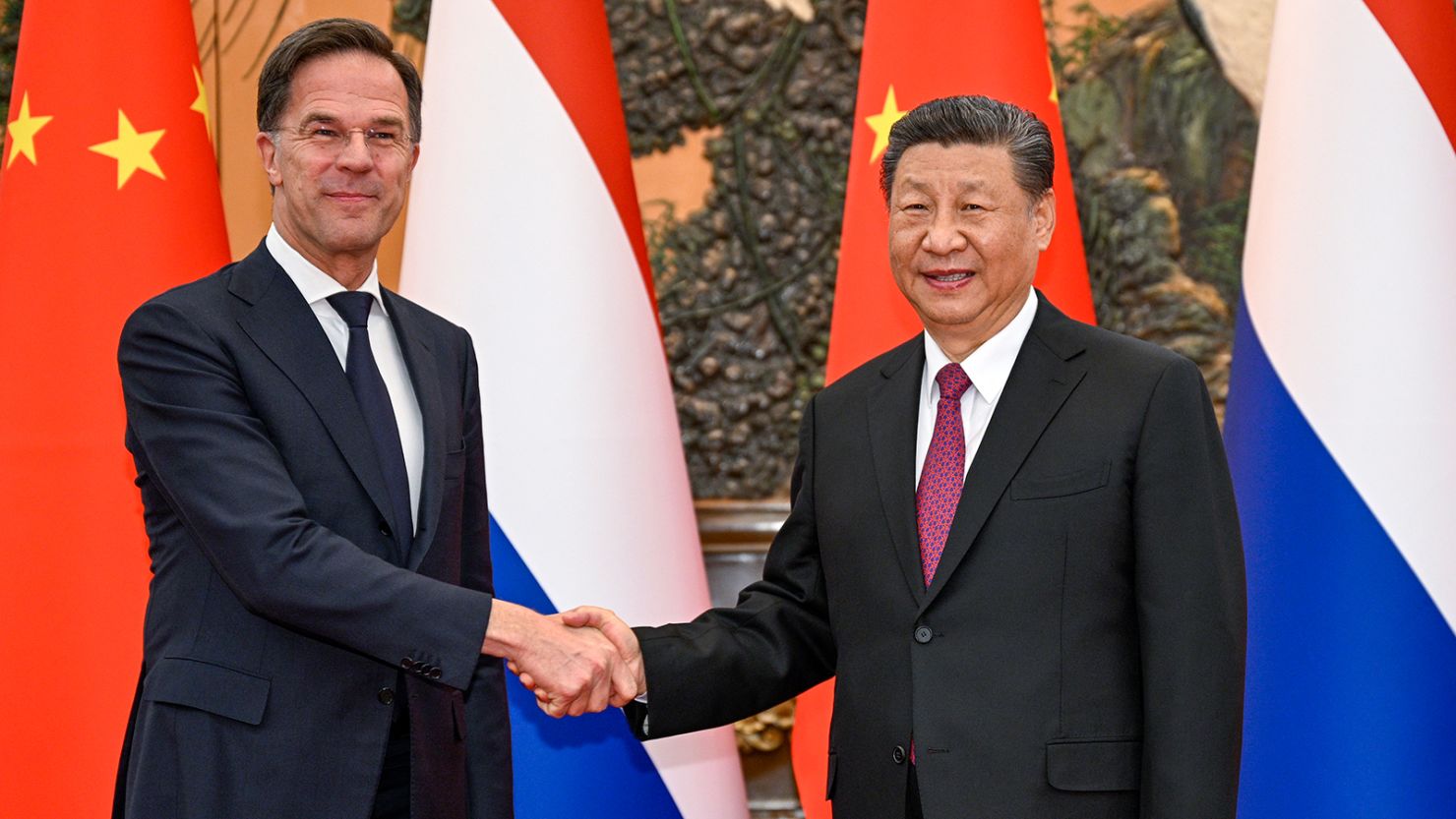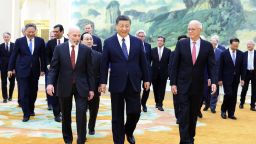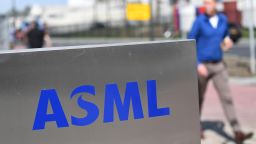Chinese leader Xi Jinping has told Dutch Prime Minister Mark Rutte that “no force can stop China’s scientific and technological development.”
Xi’s comments come as a chip war rages between China and Western countries, including the Netherlands, which is home to ASML — the world’s sole manufacturer of extreme ultraviolet lithography machines needed to make advanced semiconductors.
“Artificially creating technological barriers and cutting off industrial and supply chains will only lead to division and confrontation,” Xi told Rutte during a meeting in Beijing on Wednesday, according to a readout published by China’s foreign ministry.
There was no mention of ASML in the readout, but the company said in January that it had been prohibited by the Dutch government from shipping some of its lithography machines to China.
That came after the United States ramped up restrictions on the types of semiconductors that American companies can sell to China and pressed its allies to enact their own.
Because of its dominance in the market, ASML has been cited by experts as a bellwether of the growing rift between China and the West over access to advanced technology.
“The Chinese people also have the legitimate right to development,” Xi added in the meeting. “[We] hope that the Netherlands will continue to play an active role in promoting mutual understanding and developing constructive relations between China and Europe.”
On the same day, Chinese commerce minister Wang Wentao met with Dutch Trade Minister Geoffrey van Leeuwen, and asked for “normal trade” of lithography machines, without mentioning ASML.
“We hope the Dutch side can support companies in fulfilling their contractual obligations,” Wang was quoted as saying in a readout of the meeting on the commerce ministry’s website.
There was a surge in sales of ASML’s advanced chipmaking tools to China last year — ahead of the Dutch ban.
In the fourth quarter of 2023, China accounted for 39% of ASML’s total revenue, according to the company. Although that was slightly lower than the 46% in the third quarter, it had increased nearly fivefold from the 8% in the first quarter.
For 2023 as a whole, China’s share of ASML’s revenue was 29%, doubling from 14% in 2022.
“We believe China has spared no effort in buying as many high-end [chipmaking] tools as it can since the rules were finalized, as ASML’s sales of net system to China witnessed a big surge since the second quarter of 2023,” Jefferies analysts said in a research report last month.
“China’s access to [these high-end chipmaking] machines is key to its commercialization of 7-nanometer logic chips,” they added.
Last year, Chinese manufacturer Huawei shocked industry experts by introducing a new phone powered by a 7-nanometer processor made by China’s Semiconductor Manufacturing International Corporation (SMIC).
SMIC, which is partially state-owned, was included in the export restrictions set up by the US government several years ago.
At the time of the Huawei phone launch, analysts could not understand how the company would have the technology to make such a chip following sweeping efforts by the United States to restrict China’s access to foreign chip technology.
“China has been aggressively buying semiconductor equipment to build out production lines in both advanced and mature nodes,” according to Jefferies.
CNN’s Wayne Chang contributed to reporting.










